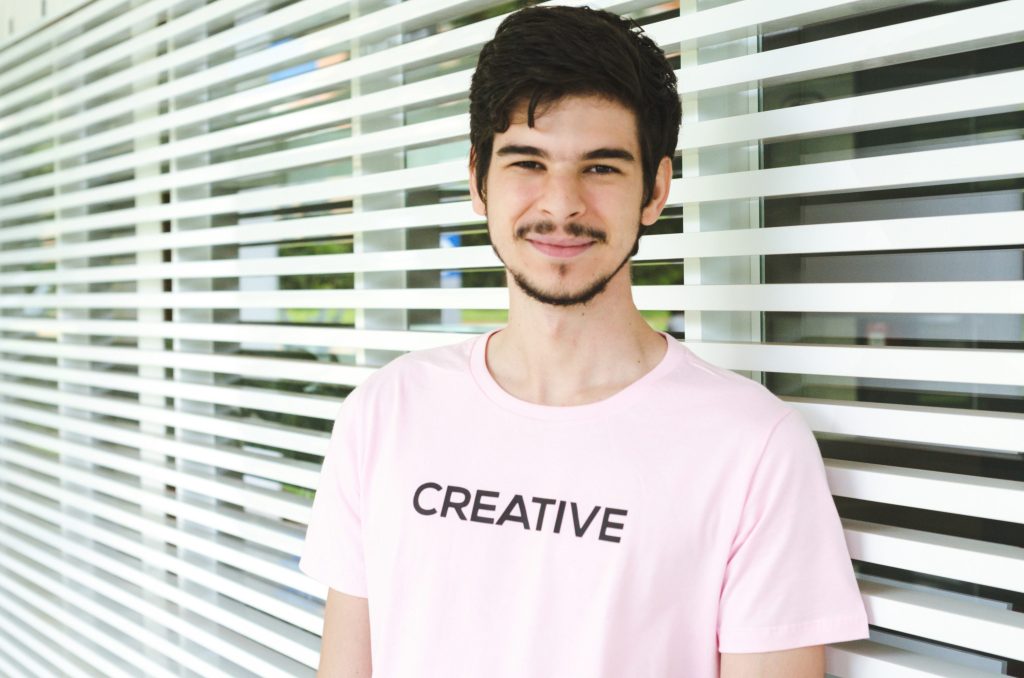
What is Creative Entrepreneurship? A Beginner’s Guide to Turning Passion into Profit for Creative Entrepreneurs
Creative entrepreneurship is an exciting type of career choice that can allow you to transform your passion and artistic talents into thriving businesses. It is where creativity meets commerce, offering a unique opportunity for those in creative fields, such as art, design, music, writing, and digital media. You can forge sustainable enterprises that generate income and deliver personal satisfaction and societal impact.
If you’re an aspiring artist or an experienced creative professional, understanding how to turn your ideas and skills into a profitable venture is key to unlocking your potential and achieving lasting success. Read on to find out more about the path to creative entrepreneurship.

What is a creative entrepreneur?
Creative entrepreneurs are individuals who leverage creativity in entrepreneurship and their creative expertise to develop marketable products or services.
Some examples of this include artists, designers, photographers, writers, musicians, podcasters, coaches, and teachers who build businesses centred on their unique ideas and talents.
Entrepreneurs like these combine innovation with passion and business acumen to reach audiences and generate revenue.
What are the benefits of creative entrepreneurship?
Creative entrepreneurship offers numerous benefits. Take a look at the short list below.
- Doing what you love while making money allows you to turn your passion into a profession, which provides greater personal satisfaction.
- Entrepreneurs can often control their schedules and income streams with careers that offer them financial independence and flexible work-life balance.
- Promoting innovation and problem-solving helps creatives identify new opportunities, encourage risk-taking, and foster innovation for business growth.
- Enhancing collaboration and cognitive flexibility, which encourages open-mindedness, teamwork, and fresh perspectives on challenges.
- Building a unique brand and personal fulfilment, which can lead to a deep sense of accomplishment and unique networking opportunities.
What is the difference between creative entrepreneurship and traditional business?
Creative entrepreneurship and traditional business differ fundamentally in their focus, especially in creativity in entrepreneurship, approach to innovation, risk tolerance, and business goals.
While traditional businesses usually operate within established markets using proven models, prioritising efficiency and steady growth, creative entrepreneurs innovate by blending artistic creativity with business savvy to develop unique offerings that disrupt or create markets.
Take a look at the table below to see more differences between creative entrepreneurship and traditional business.
| Aspect | Creative entrepreneurship | Traditional business |
| Core focus | Creativity-driven innovation and personal passion | Operational efficiency and market share |
| Business model | Flexible, experimental, often project or product-based | Structured, proven models focusing on steady growth |
| Innovation | Central to business, disrupts or creates new markets | Less emphasis; relies on established methods |
| Risk tolerance | Higher risk due to untested ideas and market uncertainty | Lower risk with predictable markets and demand |
| Market approach | Creates new demand, often niche and personalised | Competes within existing markets and customer bases |
| Motivation | Personal fulfilment, creative expression, social impact | Profitability, stability, and incremental growth |
Top creative entrepreneurs
If you’re looking for some inspiration and want to follow in the footsteps of successful entrepreneurs, look no further:
- Yousef Abuzuaiter –Founder and CEO of OhFresh Brands, which innovates healthy food and beverage options for the US market, bridging nutrition gaps through creative product development and marketing.
- Ingrid Arna – Internet entrepreneur and marketing expert known for empowering women through her online coaching business and innovative “conscious capitalism” approach to creative entrepreneurship.
- Sarah Beyahte Sanders – Co-founder and CTO of SafetyWing, a pioneering company providing global health insurance products tailored for digital nomads and remote freelancers, leveraging creativity in addressing modern workforce needs.
- Lucy Guo – Young self-made female billionaire who co-founded Scale AI and launched Passes, a platform helping content creators monetise their work, blending creativity and technology.
- Vanessa Gounden – South African fashion entrepreneur who founded Vanessa Gounden Couture, blending African heritage with contemporary fashion to create an internationally recognised brand.
From passion to profit: A simple guide to creative entrepreneurship for beginners
Now that you’ve got more of an idea of what a creative entrepreneur is and the main differences between it and traditional businesses, here’s a step-by-step on the best way to begin your journey:
- Identify your passion and skills: Know your creative strengths and interests.
- Research your market: Understand your audience and competitors.
- Develop a business model: Decide how to monetise your offerings—products, services, digital content, courses, or consulting.
- Build your brand: Create a unique identity that reflects your creative vision.
- Leverage technology and social media: Use online platforms to reach customers and showcase your work.
- Manage your finances wisely: Track income and expenses, plan for growth.
- Embrace creativity and innovation in entrepreneurship: Adapt and evolve with market trends and seek partnerships.
- Stay resilient and open-minded: Be prepared for challenges and learning curves.
Why study an MSc in creative entrepreneurship?
Studying an MSc in creative entrepreneurship provides a structured way to gain the skills needed to succeed at the intersection of creativity and business. Such programmes typically teach:
- Business and marketing fundamentals tailored to creative industries
- Innovation management and strategic thinking
- Financial planning and legal aspects relevant to creative ventures
- Networking opportunities with industry professionals and mentors
Gisma University of Applied Sciences offers an internationally recognised MSc in Creative Entrepreneurship, which gives students a global perspective and a curriculum that balances creativity with practical business skills.
The programme supports aspiring creative entrepreneurs by providing hands-on experience, expert guidance, and access to a vibrant community of like-minded students and professionals, helping turn passion into profit effectively.
Conclusion
Creative entrepreneurship is all about using creativity in entrepreneurship to build a business that is both fulfilling and financially sustainable. It can offer you a flexible, innovative, and impactful approach to business, allowing you to maintain authenticity while adapting to evolving markets. By blending passion with practical skills, such as marketing, finance, and strategic planning, creative entrepreneurs can carve out unique spaces for themselves in the business world.
FAQs
What skills do you need to be a creative entrepreneur?
Key skills include creativity, business acumen, marketing knowledge, adaptability, resilience, financial management, and communication. Being innovative and open to learning is crucial for success.
Can you start a creative business with little or no money?
Yes. Many creative entrepreneurs start small using low-cost platforms such as social media, print-on-demand services, or freelancing websites. Creativity and resourcefulness can compensate for limited funds initially.
Do I need a business plan as a creative entrepreneur?
While flexibility is important, having a business plan can clarify goals, structure your growth, and improve management of resources. It can serve as a roadmap to align your creative vision with practical steps.
What are the most profitable creative business ideas?
Profitable creative entrepreneur ideas include graphic design, digital content creation, online courses, photography, art and craft sales, consulting, writing, music production, and coaching. Profitability depends on factors such as demand, skill level, and business strategy.

About the Author James
Want to explore more?